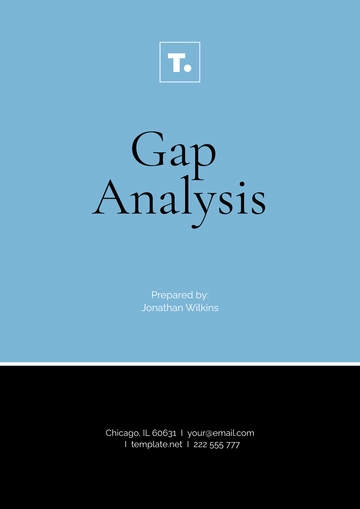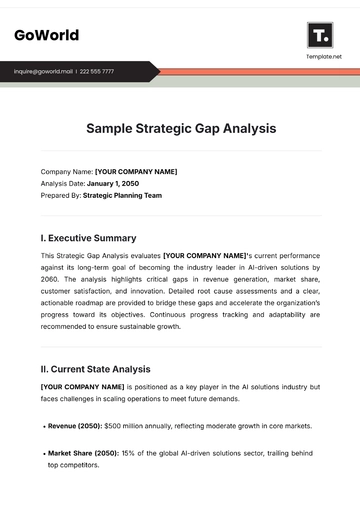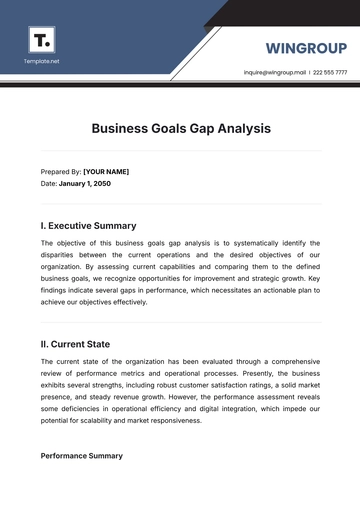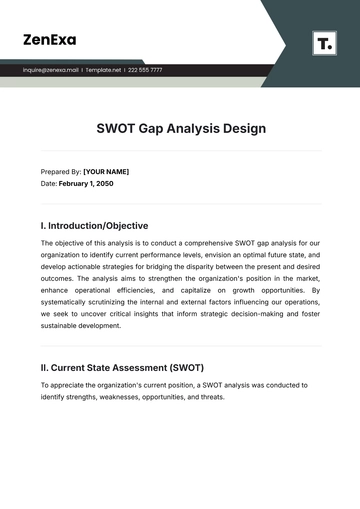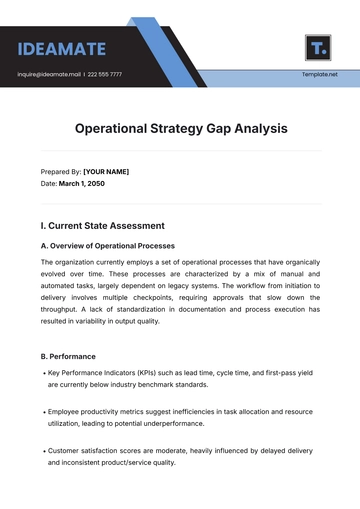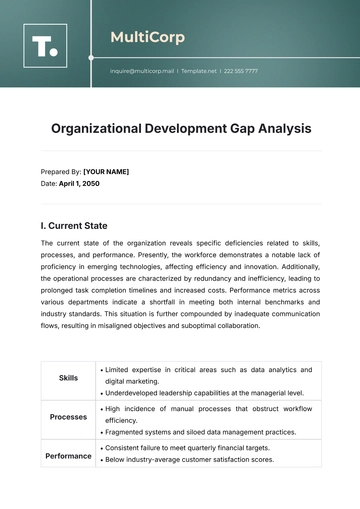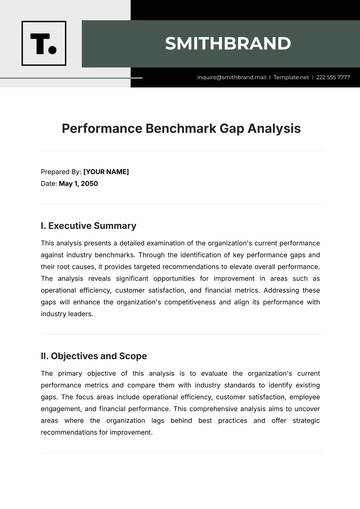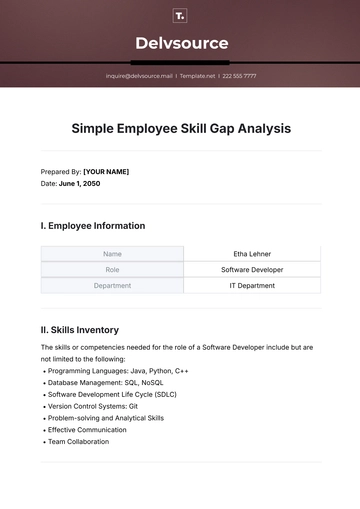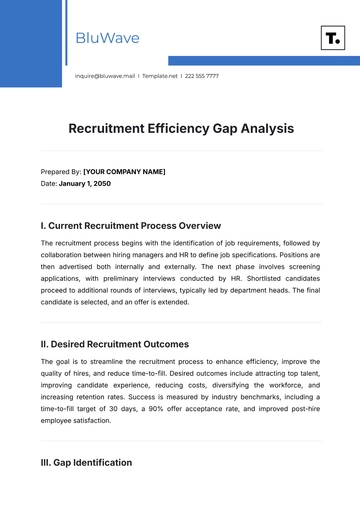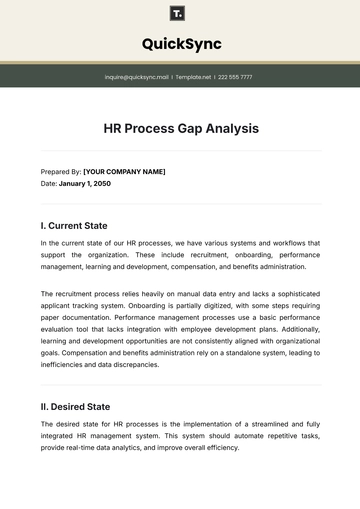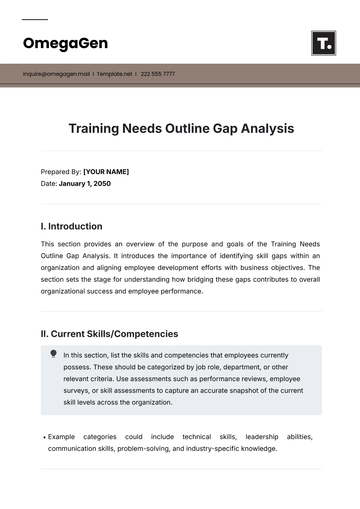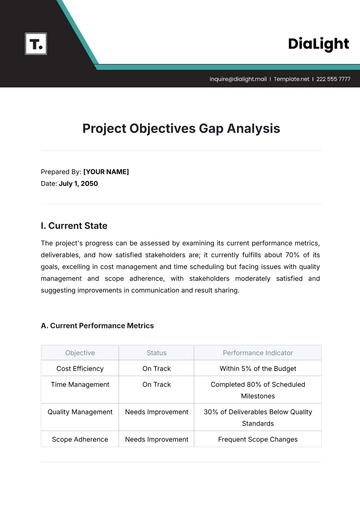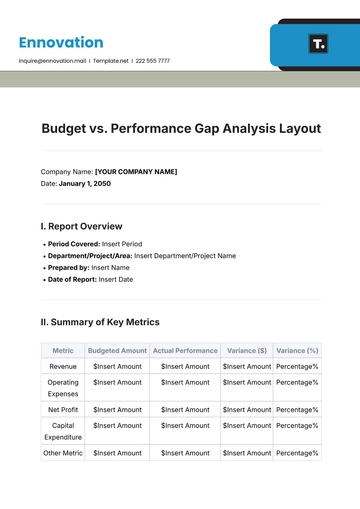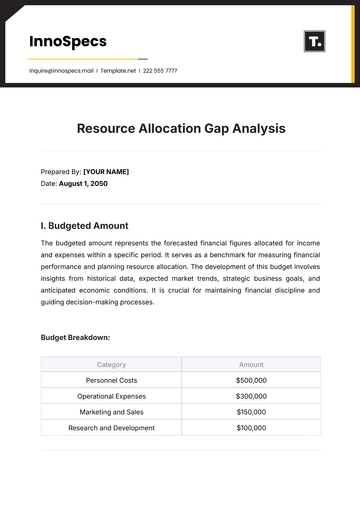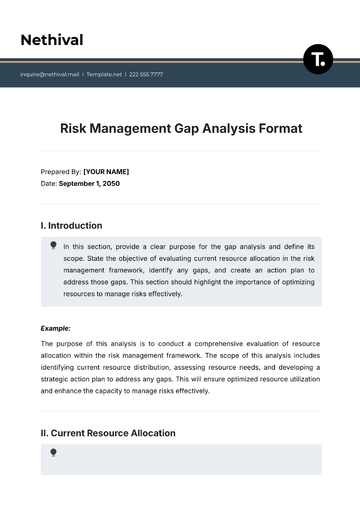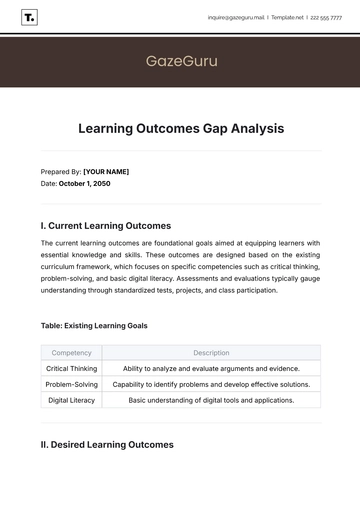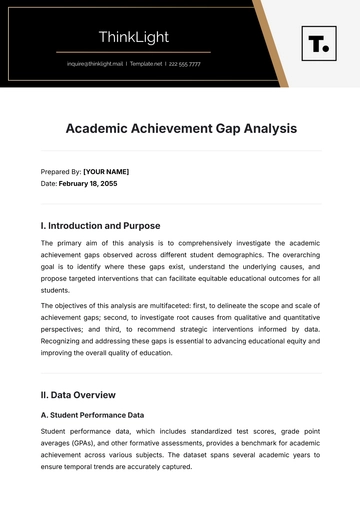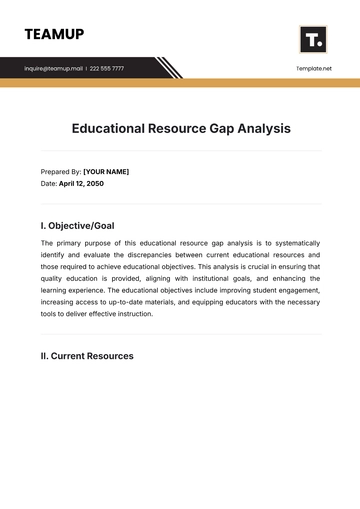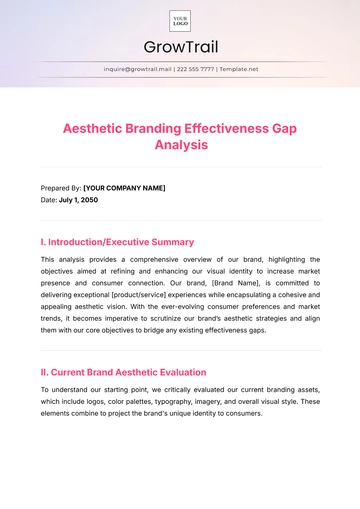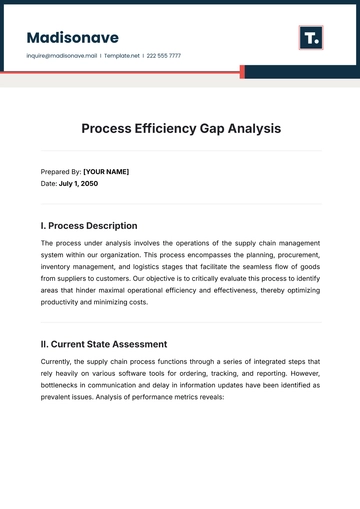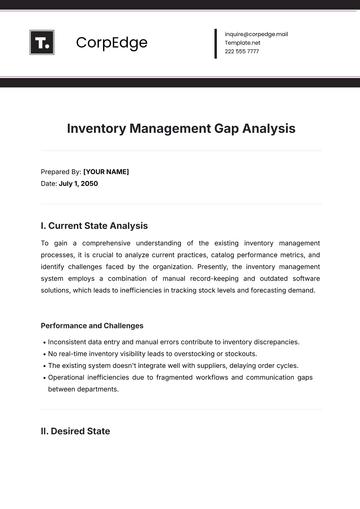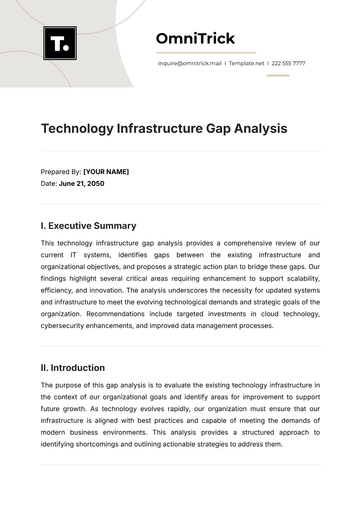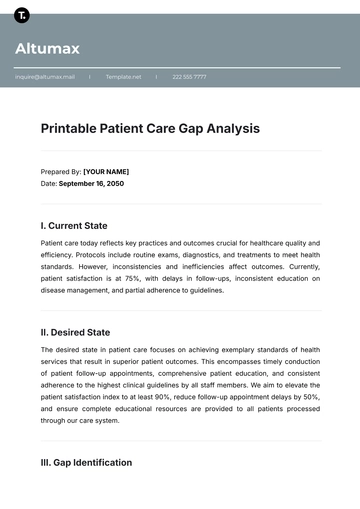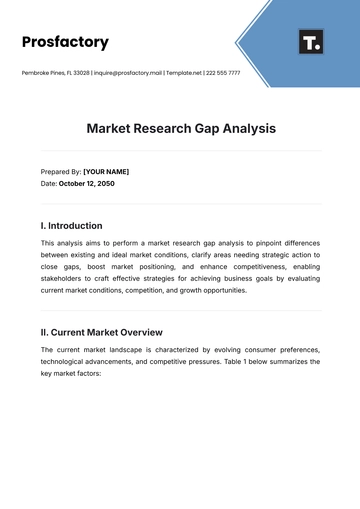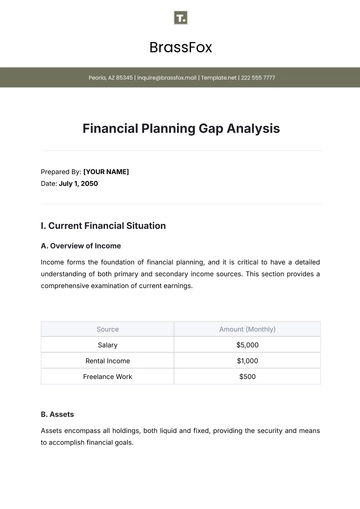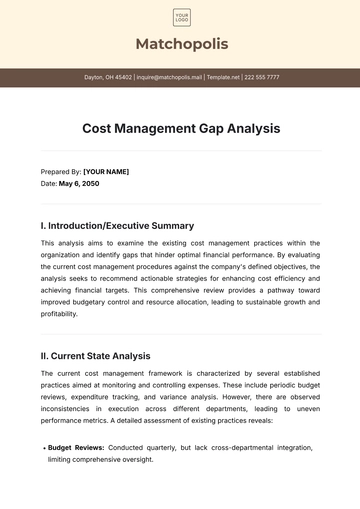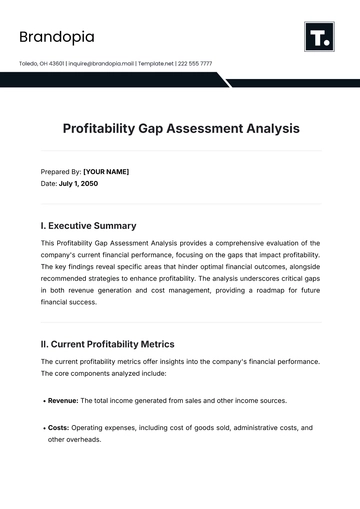Free Academic Essay for Policy Analysis
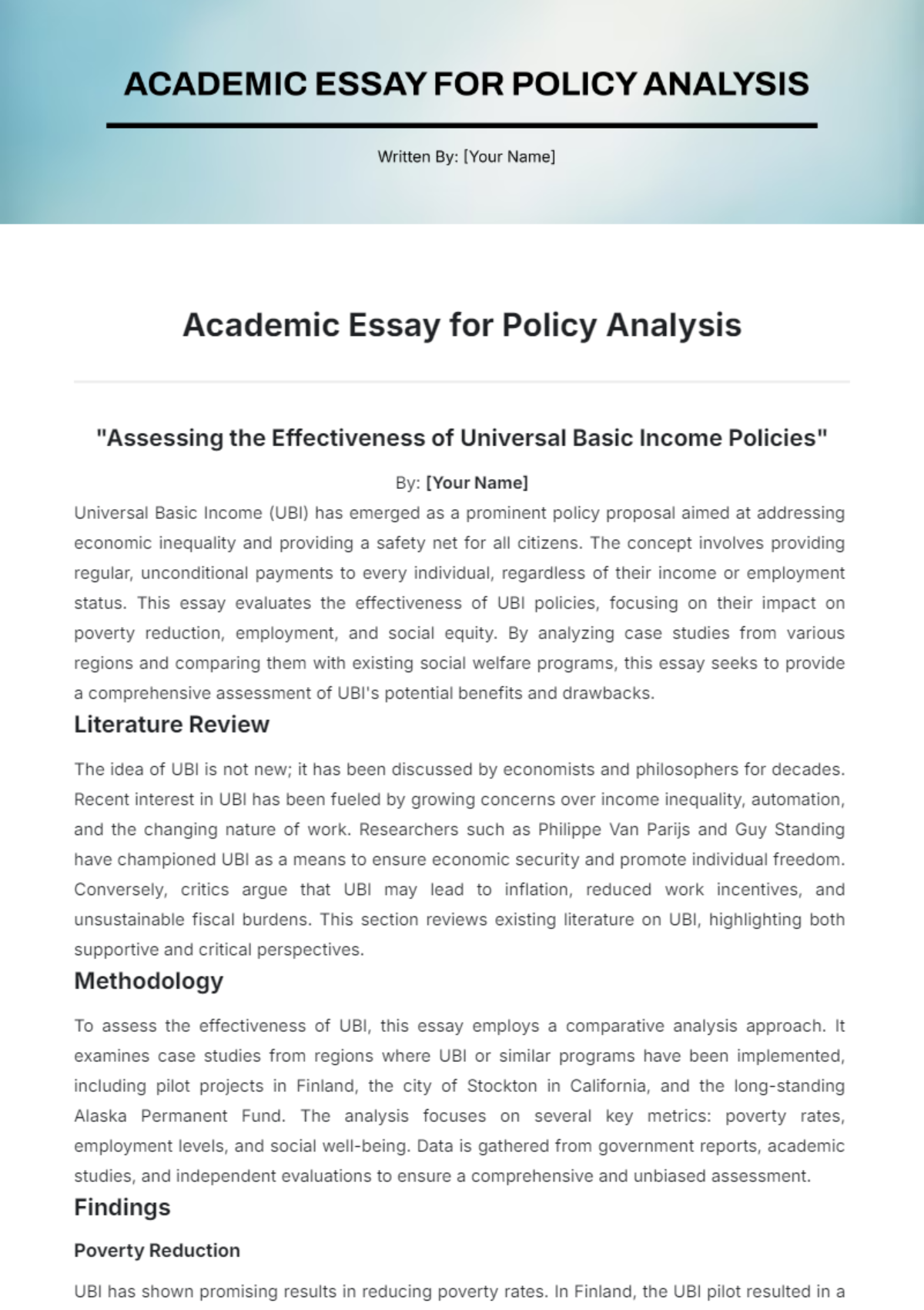
"Assessing the Effectiveness of Universal Basic Income Policies"
By: [Your Name]
Universal Basic Income (UBI) has emerged as a prominent policy proposal aimed at addressing economic inequality and providing a safety net for all citizens. The concept involves providing regular, unconditional payments to every individual, regardless of their income or employment status. This essay evaluates the effectiveness of UBI policies, focusing on their impact on poverty reduction, employment, and social equity. By analyzing case studies from various regions and comparing them with existing social welfare programs, this essay seeks to provide a comprehensive assessment of UBI's potential benefits and drawbacks.
Literature Review
The idea of UBI is not new; it has been discussed by economists and philosophers for decades. Recent interest in UBI has been fueled by growing concerns over income inequality, automation, and the changing nature of work. Researchers such as Philippe Van Parijs and Guy Standing have championed UBI as a means to ensure economic security and promote individual freedom. Conversely, critics argue that UBI may lead to inflation, reduced work incentives, and unsustainable fiscal burdens. This section reviews existing literature on UBI, highlighting both supportive and critical perspectives.
Methodology
To assess the effectiveness of UBI, this essay employs a comparative analysis approach. It examines case studies from regions where UBI or similar programs have been implemented, including pilot projects in Finland, the city of Stockton in California, and the long-standing Alaska Permanent Fund. The analysis focuses on several key metrics: poverty rates, employment levels, and social well-being. Data is gathered from government reports, academic studies, and independent evaluations to ensure a comprehensive and unbiased assessment.
Findings
Poverty Reduction
UBI has shown promising results in reducing poverty rates. In Finland, the UBI pilot resulted in a noticeable decrease in financial stress among participants and improved their overall sense of security. Similarly, the Alaska Permanent Fund has contributed to a significant reduction in poverty levels in the state. However, the extent of poverty reduction varies depending on the amount of the UBI and the existing welfare infrastructure.
Employment Impact
The impact of UBI on employment is a contentious issue. Evidence from Stockton's pilot program indicated that UBI did not significantly alter employment rates. Participants were able to pursue work that aligned with their interests and skills without the immediate pressure to secure income. However, critics argue that UBI might disincentivize work for some individuals, potentially affecting overall labor market participation.
Social Equity
UBI has been effective in promoting social equity by providing a financial safety net for all citizens. In Finland, the UBI pilot demonstrated improved mental health and reduced stigma associated with unemployment. The Alaska Permanent Fund has also contributed to a more equitable distribution of wealth within the state. Nonetheless, achieving comprehensive social equity requires integrating UBI with other social policies to address structural inequalities.
Discussion
The evaluation of UBI policies reveals a mixed picture. While UBI has potential benefits in reducing poverty and enhancing social security, its impact on employment and broader economic implications warrant careful consideration. The success of UBI programs depends on their design, including the amount of the payments and their integration with existing welfare systems. Additionally, UBI should be viewed as one component of a broader social policy framework aimed at addressing economic disparities and promoting social inclusion.
Recommendations
Based on the findings, several recommendations are proposed:
Pilot Programs: Governments should consider implementing UBI pilot programs to gather data and assess the impacts on different populations before full-scale adoption.
Integration with Existing Programs: UBI should be integrated with existing social welfare programs to enhance its effectiveness and address potential gaps in coverage.
Monitoring and Evaluation: Continuous monitoring and evaluation are essential to assess the long-term impacts of UBI and make necessary adjustments based on empirical evidence.
Universal Basic Income presents a viable policy option for addressing economic inequality and providing financial security. While the evidence from pilot programs and case studies is encouraging, further research and careful implementation are crucial to ensuring its effectiveness. By adopting a thoughtful and data-driven approach, policymakers can better understand the potential of UBI to contribute to a more equitable and resilient society.
- 100% Customizable, free editor
- Access 1 Million+ Templates, photo’s & graphics
- Download or share as a template
- Click and replace photos, graphics, text, backgrounds
- Resize, crop, AI write & more
- Access advanced editor
The Academic Essay for Policy Analysis Template from Template.net offers an editable and customizable format tailored to simplify policy analysis writing. With a clear structure that guides you through presenting data, arguments, and recommendations, this template ensures your essay is well-organized and impactful. Easily adapt it to your specific topic, making the writing process efficient while producing a professional, polished final essay. Ideal for students and policy analysts!
